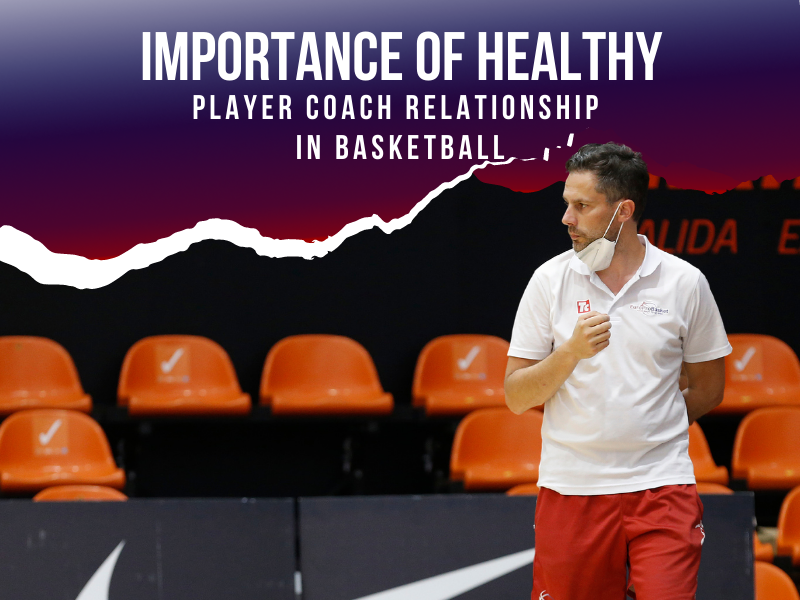A healthy relationship between a coach and their player is essential. It could be the key ingredient to become an even better player and also make a better team. It isn’t always as easy as it sounds. Some coaches and players find it difficult to get along. This can be due to multiple factors. Some examples would be poor attitude or lack of effort from the player, a feeling of dislike between the coach and player, lack of commitment from a player or a coach, poor communication from the coach, a feeling of favoritism for other players…etc.
If someone ever convinced you that they became a superstar all by themselves, they are lying. Nobody just picks up a basketball and becomes a superstar. Most Likely it is the work of multiple, possibly dozens, of coaches. Even the biggest NBA stars had help during the start of their career. Stephen Curry, one of the most well known NBA players to this day has thanked his college coach Bob McKillop for the impact he had on his basketball career and his life in general. Kevin Durant went to the Golden State Warriors in part to be reunited with Ron Adams, his former coach in the Oklahoma City Thunder where they spent three years together.
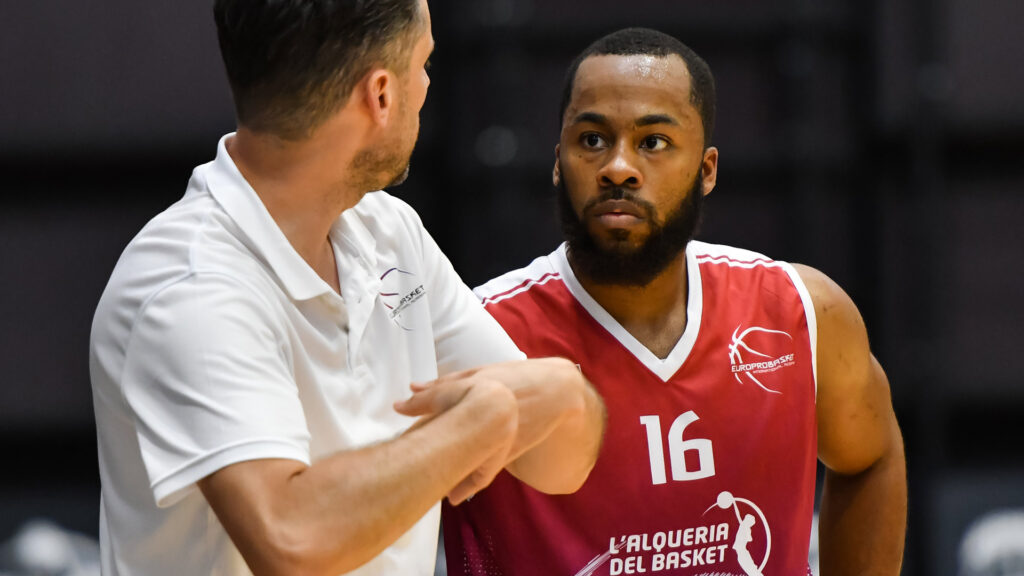
Kevin Durant and Stephen Curry are two very big names in the NBA, and both have a special relationship with a coach. This is no coincidence since this isn’t just solely for basketball but for every sport in general. This just highlights the importance of a healthy player coach relationship.
What all these top players have in common in terms of their relationship with their coach is that it always goes way beyond just the game. It’s about more, it’s about how they are shaped as a person. Now of course elements of the game are important but when you look at these relationships specifically it’s more about how they’re treated off court instead of on court. Coaching is about more than just a practice or a game, it goes way beyond that. Within this article we at EuroProBasket asked the players and the coaches what they think is important for a healthy relationship between a coach and a player so that it can give you the most realistic view possible.
For the players there was a consensus. They are adults. The players don’t need to respect you just because you’re the coach. They’re not children anymore. If the coach wants the respect of the players, he must earn it. This can be done through a variety of ways. Some coaches have the name and the achievements to back up their status. Other ones show why they should be respected through games or practices, but respect must go both ways. A healthy relationship between a basketball coach and a player can only work if the coach is respected and the players as well.
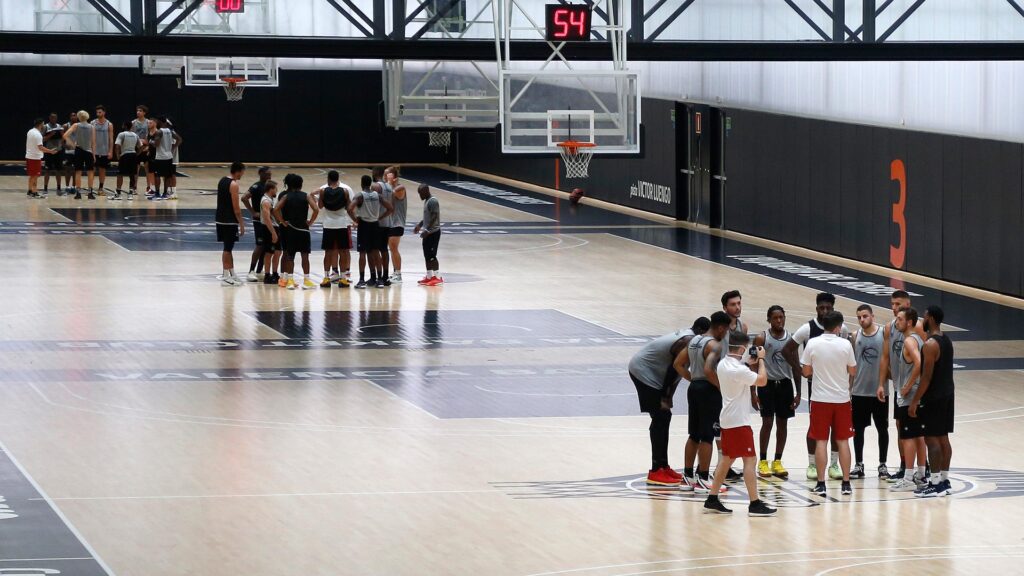
Interaction with the players is also important, that’s what maintains a healthy relationship between a basketball coach and a player. Going over the footage of the game they played and discussing what went well and what can improve. It doesn’t have to be purely basketball though. Players like it when the coach jokes around with them and has fun. This doesn’t mean that the coach has to befriend the players, but he realizes that the mental side of the player is just as important as the physical side. The players understand that the coach cannot be a friend, since they acknowledge that the coach sometimes must make difficult decisions. Finding that balance in the beginning can be tricky but it’s a crucial part to have a healthy relationship between a basketball coach and a player.
Some players consider team building very important. It can literally be everything as long as it’s something fun where both the coach and the players can relax. An example would be that the coach every now and then joins the team meal and just has a conversation with them. Another example would be to organize a beach day and go with the entire team. Something small that the players can have a release from the pressure put on them. This shows that the coach is a human being as well but also makes the bond stronger within the group. This can improve the relationship between a basketball coach and a player drastically.
Lastly, the EuroProBasket players mentioned that they appreciate it when the coach defends them to the media and not drag them through the mud. They appreciate a coach that stands up for them during a game where the opposition team is playing dirty or the referees are not calling fouls. In no shape or form does this mean that the coach isn’t allowed to critique or correct them, but the players would rather have these conversations in private instead of in public. The coach understands that the players are under intense pressure to perform so he must try to boost the morale of a player. There is a time to criticize your players and there is a time to stand up for your players. Criticizing your own players in public does more harm than good.
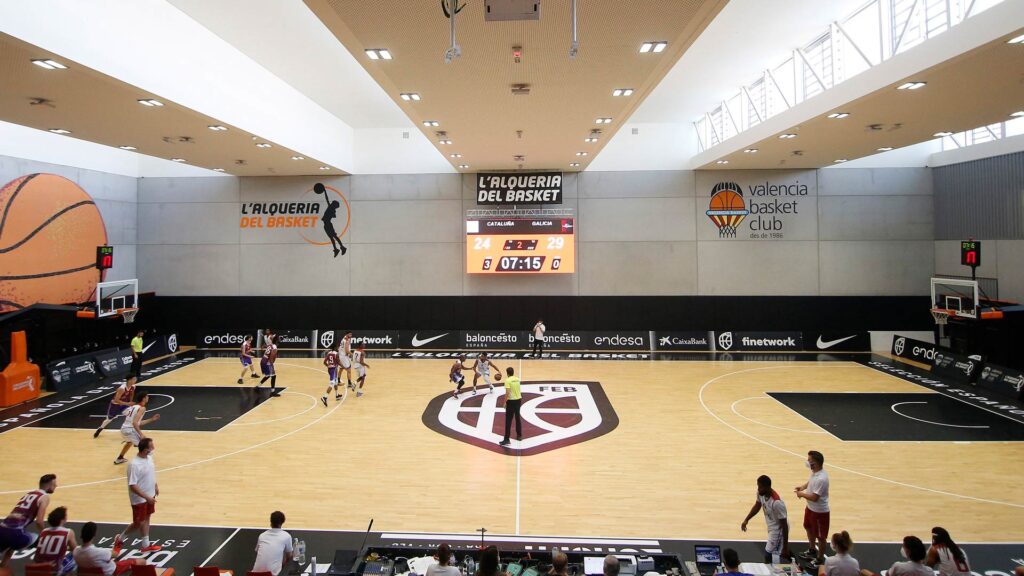
Now that we have talked about the players’ side of what they believe makes a healthy relationship between a coach and a player, let’s dive into what the head coach of EuroProBasket has to say. Pascal Meurs (born 1980) is a Valencia-based Belgian professional coach (Spain). He is the head coach of EuroProBasket, a professional basketball training and placement program. He has extensive experience as a top-level head coach in Belgium, the Netherlands, France, and Luxembourg. Pascal is a basketball analytics expert as well as an experienced speaker at coaching clinics and courses. He is an NBA analyst on Belgian television for Eleven Sports and holds a doctorate in Mathematics.
As you can see coach Pascal has tons of experience and good knowledge about basketball. What also is impressive is that he coached in various countries at the highest level. This is perfect because he has worked with players from all over the world and he perfectly understands the importance of a healthy relationship with a basketball coach and player. He was the ideal candidate to interview and he was kind enough to answer some questions we proposed to him.
Table of Contents
ToggleInterview with Belgian Professional Coach Pascal Meurs
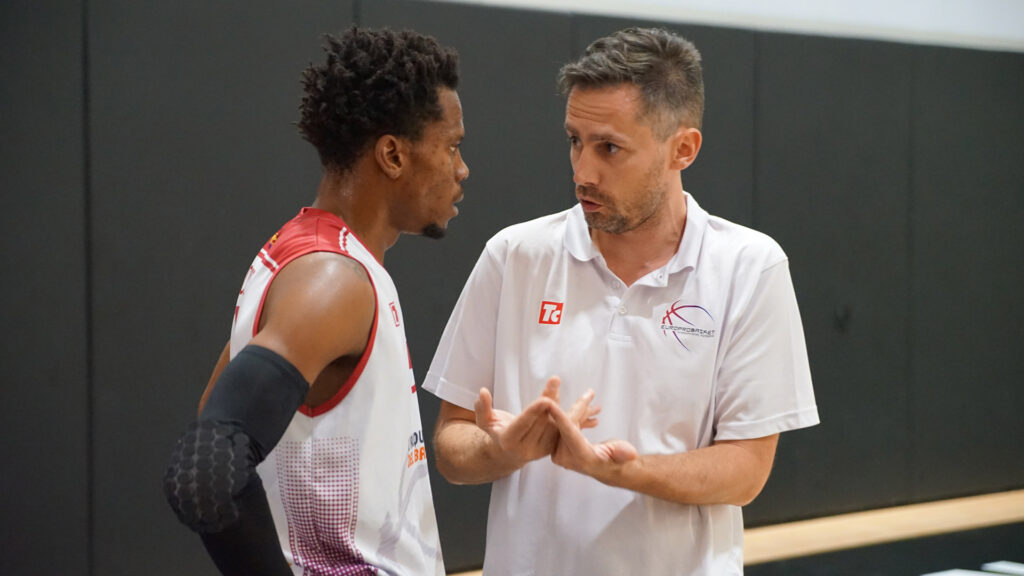
What is the first thing that pops up when you think about a healthy player coach relationship in regards to basketball?
As a coach, it’s important to realize that you are working with human beings. You’re not playing a video game. Often, athletes spend more hours with you in a week than with anybody else. That gives a lot of responsibility and I think a coach can never overestimate the impact he sometimes has over some players. In a positive or in a negative way. Not only do we try to improve them as basketball players, but also as a person in general.
Do you believe that a good player coach relationship can improve the team?
Not only is it important, but it is also crucial. But I think a “correct” relationship is a better description than “good”. It’s not about being best friends with the players. Neither is it about players thinking their coach is “cool”.
Should a basketball coach and a player be friends? Or do you consider they need to have another type of relationship? How do you believe a coach should interact with a player?
I think it’s important that a coach “connects” with every player. That can be on many different levels: share the same sense of humor, supporting the same NBA team (or even better: dislike each other’s favorite team 😊), interest in his study, watching the same Netflix series, … It’s important to have something else to talk about than just his role and stats on the team. It will relieve the tension in moments when that role is under pressure. And it proves that you still care about him as a person during periods where the player feels you criticize his game a lot.
But personally, I draw a line with players. There are a lot of things I do with friends which I wouldn’t consider doing with a player. That can obviously change when that player turns into a “former player”.
Management is very important since every individual needs a different approach. How do you deal with that, or do you believe that you need to approach every player the same?
Every team and every individual needs a different style of coach at different moments in their career and season. Therefore, a coach must be very versatile in his relationships with human beings. Not only differentiate within a group of people, but also depending on the moment. While you still want to be fair to everyone. And need to have common rules (on and off court) and a common sense that these rules must be respected by every member of the roster.
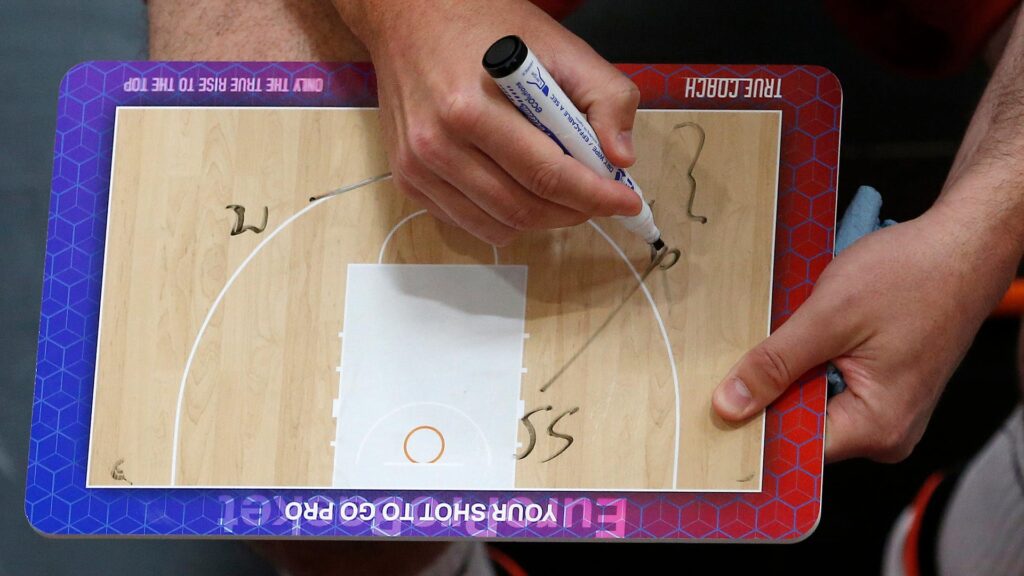
“Never let a win get to your head or a loss get to your heart” is a famous quote that is used a lot in sports, basketball is no different. You win some and you lose some so my question to you is how do you deal with that aspect of the game?
Never too high, never too low with your emotions. As a professional, you give your best every single day. But you also realize that losing is part of basketball. I sometimes notice that the emotions of American players are uniquely driven by the result. After a loss, it seems they must be mad and frustrated. And the opposite when winning. Well, there’s more to it than this.
Playing basketball in Europe is much different than playing basketball in North America. How do you cope with that when you have players who want to play overseas basketball?
In a professional environment you always end up with players with different backgrounds. When a player plays for the first time in Europe, he must adapt to several things. The relationship with the coach can be very different. The style of play can be radically different where in Europe it’s important to create advantages from sharing the ball. But also, for example the rotation, the length of the substitutions can be very different from what they are used to. Communication is an important tool to explain your actions, although there’s often no time to do it in the heat of the moment, but rather at a later moment.
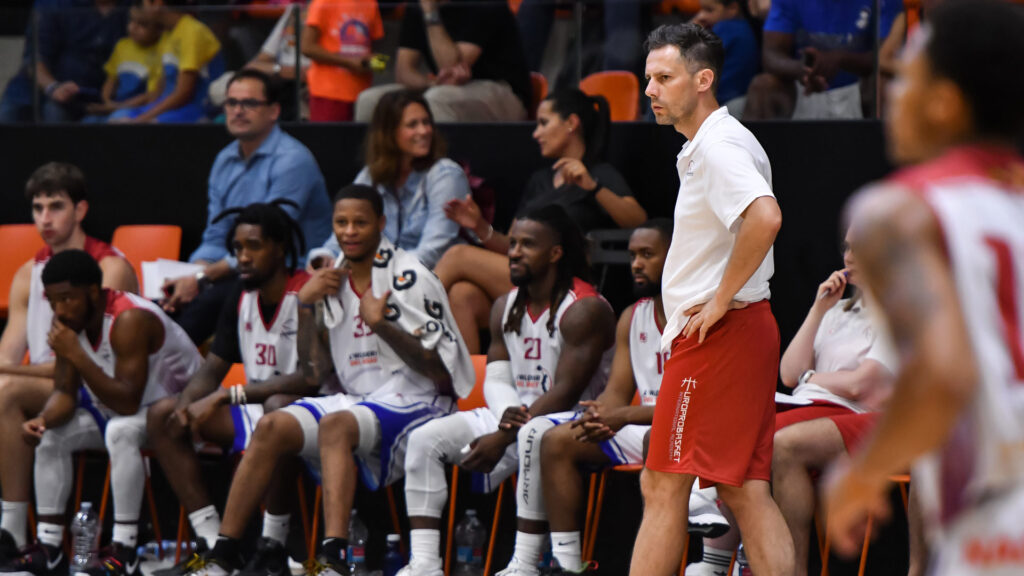
Lastly, did you ever have a fallout with a player and if you did how do you try to fix your relationship between you and the player?
Unfortunately, yes. It’s kind of logical. I have been coaching teams now for almost 20 years. And it makes sense that you don’t connect the same way with each player. Even when being versatile, as a coach you have a certain style and personality. Not every player will perform at his best under every coach. Some players didn’t have a coach that criticized them before, while it may be the crucial thing to make it to the next level. Either the player is ready for that challenge, either he’s not or he will stay at the level he is right now. As a coach, you try several things to “get to the player”. You try to “reach” him in different styles or you try to send your message in different forms. Yell at him or be very positive. Do it in a group or do it individually. Be very direct or use humor. By talking a lot, or by sending him short clips from the game/practice. By sending him a meme by WhatsApp. Good coaches can be very creative and go far to reach their goal… 😉
If none of these things work, you set up a more formal meeting. Asking questions is an important part of that. A question I like to ask, even before starting to work together is: “How do you want to be coached? What do you need from me to perform at your best?” And you look for a common ground, where the player plays at its best in a role that you as a coach need in the team rotation.
But unfortunately, it happened that all these things didn’t work and that we parted ways. The funny thing is that it often happens that the players I clashed with the most, are the ones with whom I have the best relationship with afterwards. As a player, or even off the court years later. I just know for sure that avoiding or looking away from the problem isn’t in the best interest of the team. It won’t work and the problem will only row over time.
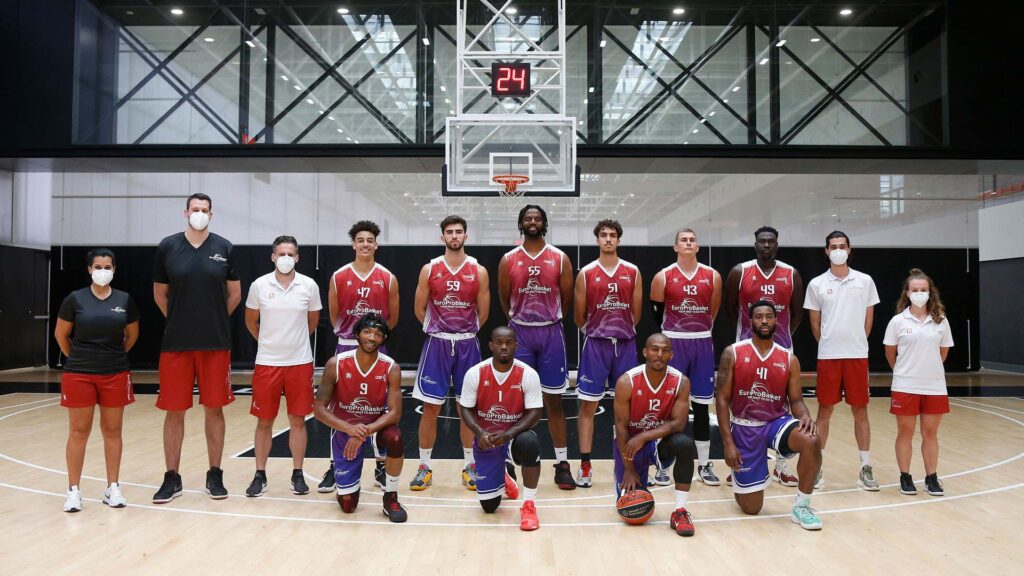
When I asked the players what they find the most important part of a healthy relationship between a coach and a player their general response was similar. It came down to good communication, the coach cares about the players and that he pushes them to become better. What do you consider the most important aspects for a healthy relationship between the coach and the players?
Communication is indeed the most important thing. Let’s be honest, on a 12 man roster you can only have 5 players on the court. Every game there are only 200 game minutes to split over the team. On a professional level you cannot give minutes to players because they are a nice guy. Every decision is taken for the best of the team. And the management has put you in the driving seat. They give you the confidence to take all these decisions in the benefit of the team in the short and long term.
Players must realize that coaches have a lot of things going on in their mind: a 12-man roster, the X’s and O’s, offensive & defense, tactics and strong points of the opponents, the referees, … In the heat of the moment, there’s no time to individually put context to instructions and feedback. Coaches give instructions and feedback in a very direct manner and players absorb as much information as possible and give their best in executing. After practice there’s time to talk and ask for explanations. That’s the kind of working relationship you sign up for when playing in a team. Players that cannot accept that, should rather consider an individual sport like tennis.
As a player, you should only enter a team and enter the court if you want to be coached. My experience is that the best players in the game want to get as much feedback as possible. That includes they want to be criticized and yelled at sometimes. Because they want to improve. They keep in their mind that every action of the coach is to improve them and to improve the team.
For me, it’s the number #1 condition to be part of a team in sports: YOU WANT TO BE COACHED.
We hope you gained some valuable insight from this article: Importance of a healthy player coach relationship in basketball. Make sure to follow us on social media to be notified when more articles are published.




